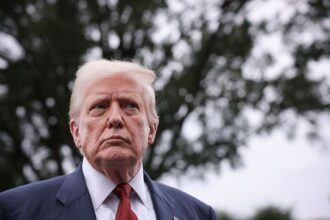**Trump’s Tariff War with China: What’s Next?**
The trade war between the US and China has been a major topic of discussion for years. In 2018, President Trump started imposing tariffs on Chinese goods to put pressure on Beijing to change its trade practices. But what happens next in this ongoing battle?
**Tariffs and Retaliation**
In recent months, tensions have escalated as the two countries imposed more tariffs on each other’s goods. The US has targeted Chinese industries like tech and energy, while China has retaliated with its own set of tariffs on American products such as soybeans and pork. This back-and-forth has led to a decline in trade between the two nations.
**Impact on Consumers**
The tariff war has had significant effects on consumers worldwide. Prices for electronics, furniture, and other goods have increased due to the added costs from the tariffs. Some businesses have also struggled to adapt to the changing market, with some even filing for bankruptcy. As the economy continues to feel the impact of the trade war, it’s essential to understand what’s at stake.
**Expert Analysis**
According to economic experts, the ongoing tariff war is a “lose-lose” situation for both countries. The tariffs imposed by Trump have not led to significant changes in China’s trade practices and have instead disrupted global supply chains. On the other hand, the retaliatory measures taken by China have hurt American farmers and businesses that rely on Chinese imports.
**What’s Next?**
So, what happens next in this ongoing saga? Some experts predict a continuation of the current trend, with both sides imposing more tariffs. Others believe that Trump’s successor might take a different approach or even negotiate a new trade deal with China. One thing is certain: the impact of this trade war will be felt for years to come.
**Stay Informed**
To stay up-to-date on the latest developments in the US-China trade war, follow reputable news sources and experts who provide analysis and insights into the complex world of international trade.
Read More @ www.reuters.com












